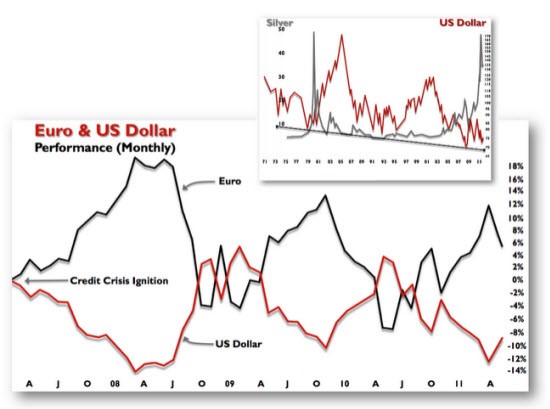Leveraged ETF Insanity Continues Another Class Action Lawsuit
Post on: 1 Апрель, 2015 No Comment

by Michael Johnston on August 12, 2009 | Updated January 21, 2010
Once the lawyers get a hold of a juicy,well-publicized story of the middle class apparently done wrong, theres no telling how far theyll take it or how deep theyll sink their teeth in. In the case of the most recent leveraged ETF controversy, it seems that there are a number of firms following a file suits first, uncover the facts later approach. The law offices of Howard G. Smith recently announced that a class action lawsuit has been filed in the U.S. District Court on behalf of all persons who purchased shares in the ProShares UltraShort Real Estate Fund (SRS ) pursuant or traceable to ProShares false and misleading Registration Statement, Prospectuses, and Statements of Additional Information.
Sounds like a travesty. Too bad theres no basis for any of the claims.
While there has been a great deal of controversy surrounding leveraged ETFs in recent months (a great deal of it misinformed and misrepresented), this lawsuit (there have been and likely will be others) focuses on a single ProShares fund. An excerpt from the press release announcing the lawsuit indicates that someone hasnt done their homework on the leveraged ETF situation (emphasis added by ETFdb ):
The SRS Fund seeks investment results that correspond to twice the inverse (–200%) daily performance of the Dow Jones U.S. Real Estate Index (“DJREI”), which measures the performance of the real estate sector of the U.S. equity market. Accordingly, the SRS Fund is supposed to deliver double the inverse return of the DJREI, which fell approximately 39.2 percent from January 2, 2008 through December 17, 2008, ostensibly creating a profit for investors who anticipated a decline in the U.S. real estate market. In other words, the SRS Fund should have appreciated by 78.4 percent during this period. However, the SRS Fund actually fell approximately 48.2 percent during this period—the antithesis of a directional play.
This would certainly be a very compelling fact pattern, if only there was some sound reasoning behind it. Consider the description of SRS from the prospectus available from ProShares.com (again, emphasis added by ETFdb):
Short ProShares are designed to correspond to the inverse of the daily performance or twice (200%) the inverse of the daily performance of an underlying index. The Funds do not seek to achieve their stated investment objective over a period of time greater than one day.
Its been a while since my high school English courses, but Im struggling to see how anyone could read the ProShares prospectus and interpret the wording to mean that an investment in SRS should have returned almost 80% over a nearly year-long period. It seems like the prospectus explicitly states that the fund wouldnt achieve its stated objective over periods of time greater than a day. But then again, Im no attorney. What would I know?
The facts regarding the performance of SRS during 2008 are absolutely accurate the fund lost almost half of its value despite the fact that the underlying index dropped by nearly 40%. This is a result of the times the period in question witnessed record levels of volatility. which exacerbated the effects of compounding of returns and caused the flipped return on SRS. But this doesnt mean that the funds performance was inconsistent with its stated objective.
According to the press release, the suit claims that ProShares failed to disclose certain risks, including (1) the role leveraged funds play in increasing market volatility, (2) the dislocation in the stock market caused by SRS, and (3) the severe consequences of high market volatility on SRS performance.
Its a shame that these lawsuits are going to cost the taxpayers of New York and the folks at ProShares a fair amount of money. Somehow, the fact that leveraged ETFs dont perform as some investors expect them to has been twisted into a notion that they dont perform as the leveraged ETF issuers say they will. This is one of the biggest and most frustrating misconceptions about these funds. They actually do an excellent job of performing their stated objective, and ETF issuers have gone to great lengths to educate investors as to exactly what that goal is.
Maybe theres more to this suit than meets the eye, but what is evident so far reflects a flimsy argument at best. Calls to the law firm for more information werent immediately returned (in fact I wasnt even able to speak to anything besides a machine). But it seems like a sorely misguided witch hunt. If anyone is guilty in this saga, its the professional money managers who have allegedly invested client dollars in leveraged ETFs without a thorough understanding of their risk profile.
Disclosure: No positions at time of writing.














